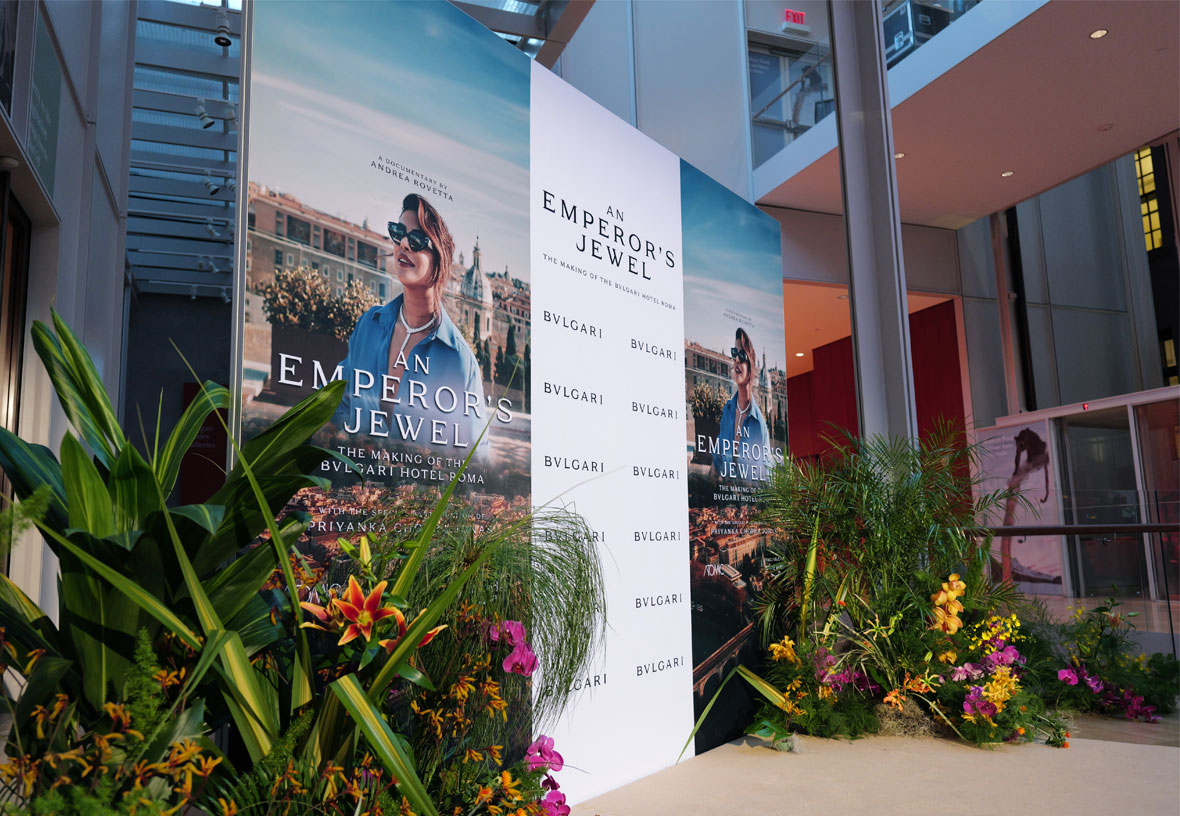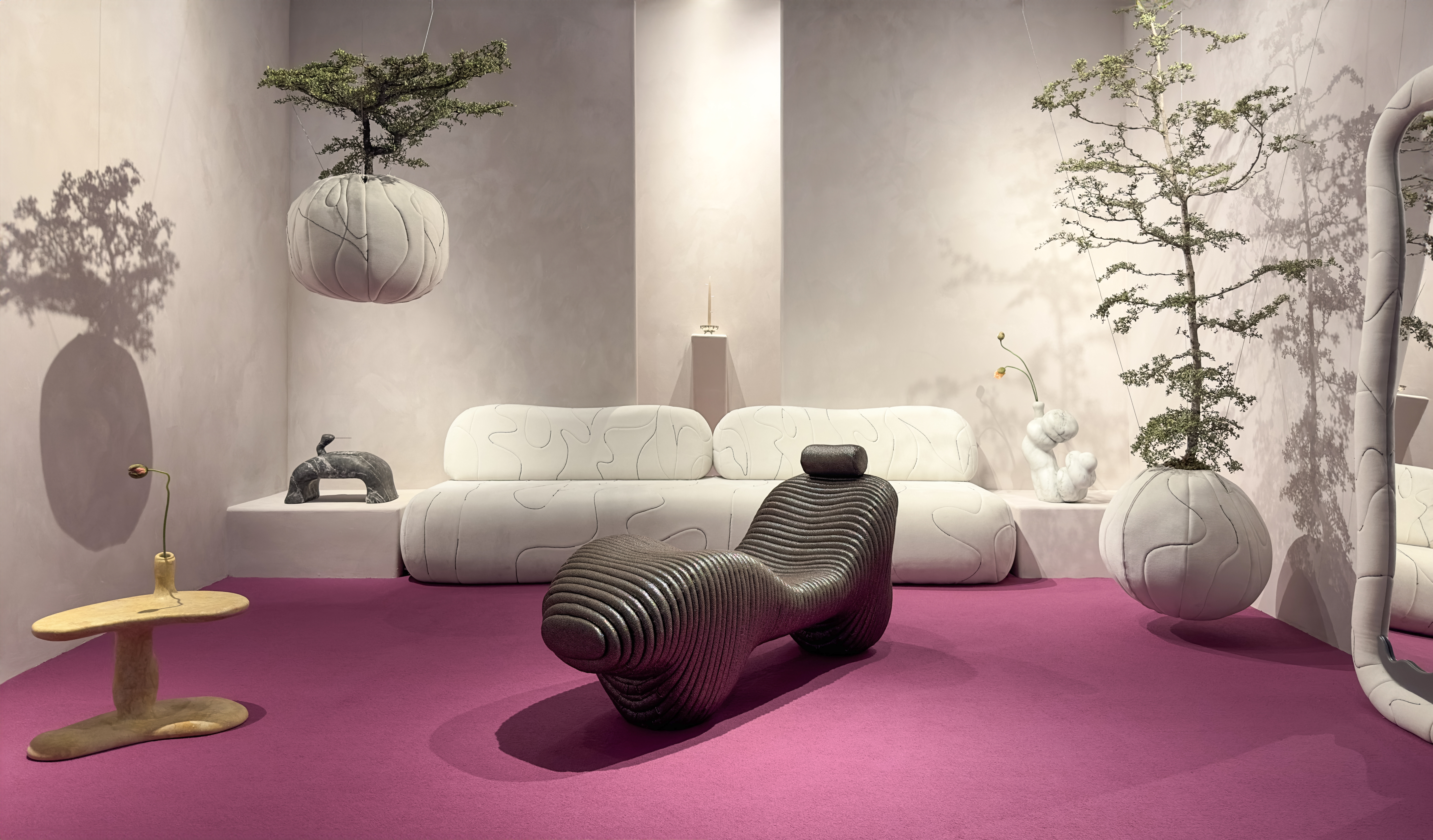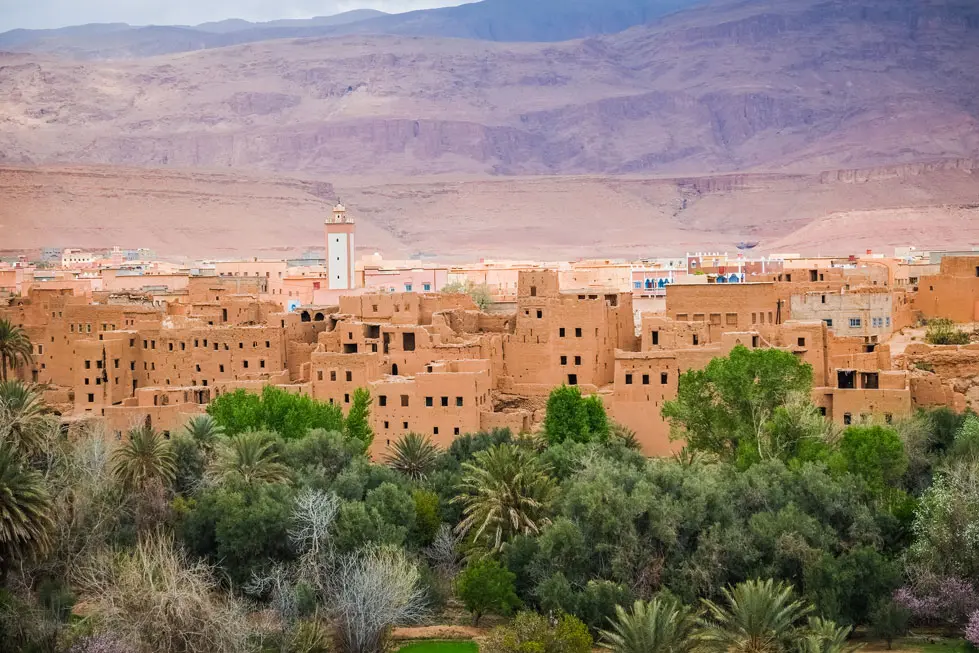We care about your privacy. We attempt to limit our use of cookies to those that help improve our site. By continuing to use this site, you agree to the use of cookies. To learn more about cookies see our Privacy Policy.
Waris Ahluwalia is Celebrating Craft & Community with his Latest Endeavor, House of Waris Botanicals
This is an exercise in slowing down
“I think that the underlying philosophy is that I’m an explorer,” posits Waris Ahluwalia, “and all great ideas deserve the time and attention to be explored. And fortunately—or unfortunately—when I find interest in something, I dive really deep.” He’s not posturing; in his ‘career’—a diminutive term considering the breadth of it—his roles have included actor, designer, and jewelry maker among others, each allowing him to dedicate his attention to an impassioned and meditative pursuit. The latest medium he’s chosen? Tea. With the launch of House of Waris Botanicals, Ahluwalia brings together his desire to share his taste (literally, this time) and celebrate craft, with an underlying need to create an uplifting, restorative business.
House of Waris Botanicals opened in December, occupying a tiny space in Chelsea with two benches, one indoor and one outside, and a counter where visitors can get fresh cups of tea or house-made beverages. There are tins of herbal sachets offered in three adaptogenic varieties (the tins are also available to purchase online), and an herbalist is available on weekends to create a personalized blend. Soon, the shop will open late night hours where they will offer a bar sans-alcohol—Ahluwalia is not a drinker—as a way to build a community. The space lends itself to the ethos of the brand; small, personal, local. “We’re here to serve a community, our first local community. If we we can’t change the lives of the people around us, we’re not doing our job.” It’s a lofty ideal, but a sincere one. With House of Waris, Ahluwalia doesn’t just want to promote wellness, but goodness too. “This thing ‘House of Waris Botanicals’ made sense because it speaks to a higher purpose. It’s not just the idea of doing business, but speaks to the idea of a new way of doing business.”
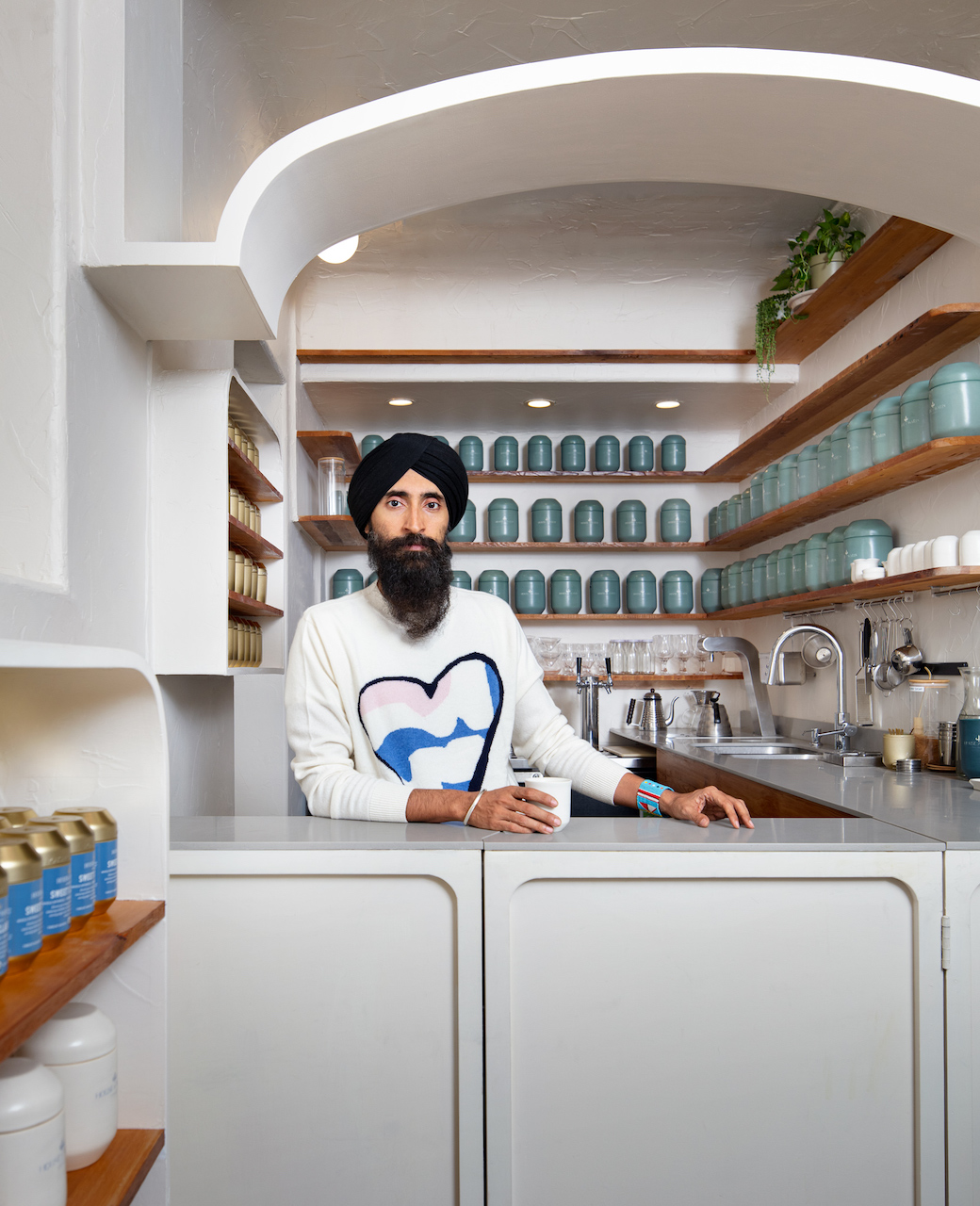
[Photo: Steve Freihon]
Like many others who are confronting the realities of our economic system, and the negative externalities that stem from it, Ahluwalia was compelled to provide an alternative. “The way capitalism is structured is that you rape, pillage, and plunder and then you build a community center; you rape, pillage, and plunder and then you build a university; you rape, pillage, and plunder and you take a wing at the Met.” He saw things differently: instead of stepping on people, what if you could empower them? He insisted on creating something, however small, that traded on the wealth of community rather than, well…wealth. “All too often you’re like what’s the newest way of doing business, all too often business go, ‘what can we get away with? What’s the least we can offer? What’s the most we can charge?’ But that’s a broken value system, so we went the other way and said what’s the best we can offer, and what’s the least we can charge?”
For Ahluwalia the way to do that was through tea, inherently slow, communal, and connected to nature—all things that he realized people were losing sight of. He first recognized this in the growing health problems plaguing the country. “Right now the issue is we’ve never, as a country and as a nation and as a world we’ve never been at a time where there are more people have been suffering from sleep disorders, immunity dysfunction, digestive disorder, it’s 70-90% of doctors visits are due to stress. 110 million people die every year due to stress. We’re doing it to ourselves. And we’re forgetting that we have the answer, we’ve always had the answer.”
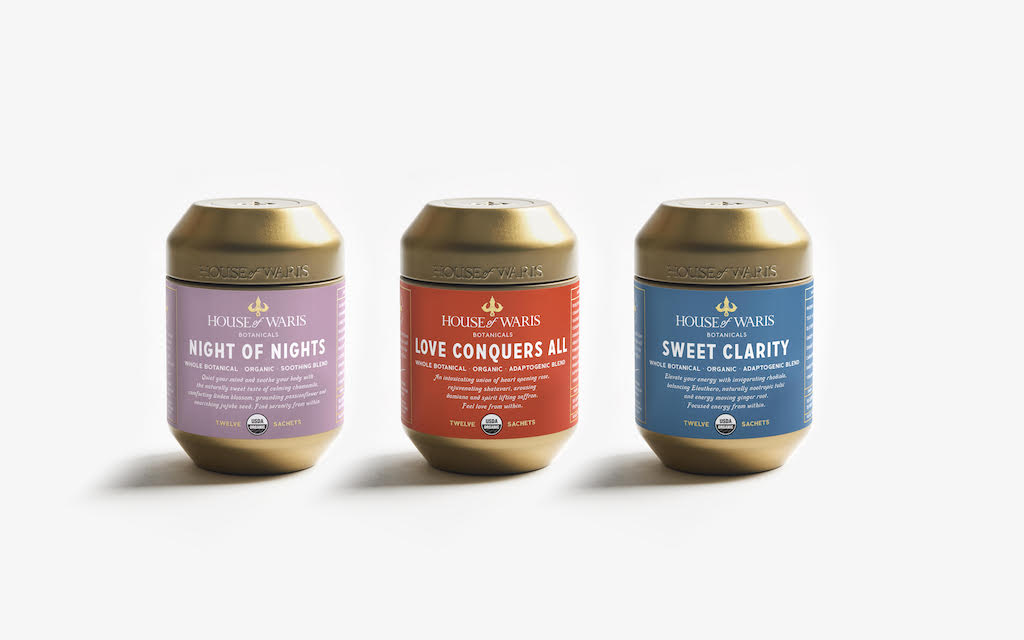
The answer Ahluwalia refers to is adaptogens—herbs that help your body adapt to stressors—and more broadly, the way we consume them and utilize what has already existed in nature and society from the earliest civilizations. In this country, however, we forgot the potential of those herbs when pharmaceutical companies began to rise. “It became a very simple thing about profit over people, and we continuously accept that—profit over people. And so we’re continuously taken advantage of because it might save us some time. We’ve been conditioned as people to accept that. We’ve been conditioned to look for a shortcut, everybody, always; what’s the fastest way. The fastest way, as we now know, is not the best way.”
House of Waris Botanicals was built to be an antidote to that attitude. The size of the Chelsea tea house doesn’t invite chaos; despite Ahluwalia’s natural draw, this is less of a scene and more of a respite. “I mean, where are you? You’re in the middle of Manhattan,” he points out, noting the serenity of the space within the ever-present clamor of New York. “This is an exercise in slowing down.” The teas themselves were created to promote wellness, but unlike many other traditional tea remedies, Ahluwalia paid an equal amount of attention to flavor. “Everything has been formulated and created as a recipe to be delicious. I like every meal, whenever possible, to be delicious. I don’t need it to be fancy; I don’t care if it’s a hut on the side of the road or a small deli that makes an amazing sandwich. It’s not the cost. I’m someone that likes to live my life with joy and pleasure, and so I’m not going to make things that taste bad.”
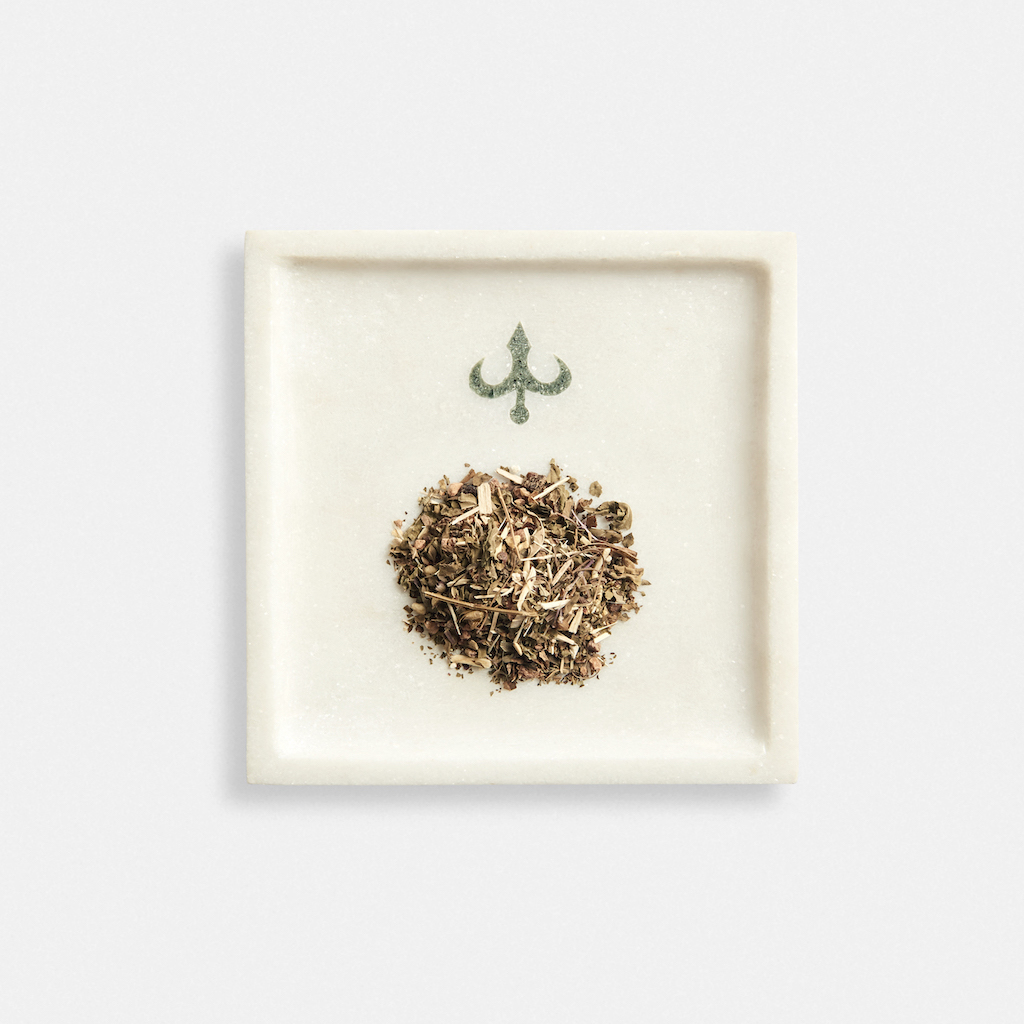
House of Waris Botanicals enabled Ahluwalia to be a proponent of this holistic approach to business, an advocate for a smaller, slower way of doing things, but he’s also quick to claim that his entire creative output has rested on these same principles. His former jewelry line embodied this the most, opting for craftsmanship over scale. “Everything was about the process and slowing it down, and the value of artisanship, and the rarity of craftsmanship in a world that’s machine made. That’s what we were talking about when we were doing jewelry, it was never about who was wearing it.” Incidentally, House of Waris’ first foray into the tea world came nearly a decade ago when Ahluwalia had a space for a pop-up jewelry shop under the Highline, and felt it would be more valuable to use as an inviting tea house.
This is the through-line in Ahluwalia’s career, and what has made him such an alluring figure. This is about connection, deriving quality through a personal touch; a celebration of humanity, as he likes to put it. “I’m not doing anything different,” he insists. “There’s been no transition, there’s been no pivot. My materials change; I’ve worked in gold, I’ve worked in cotton, I’ve worked in ceramic, I’ve worked in wood, I’ve worked in marble, I’ve worked in ink, I’ve worked in film.” Now he has tea to add to that list, and it might be the best expression of Ahluwalia yet. “My materials always change, but I’m telling the same story.”
House of Waris Botanicals is open daily from 8am-6pm at 463 W 24th St; herbalists are available on Saturdays and Sundays from 11am-5pm
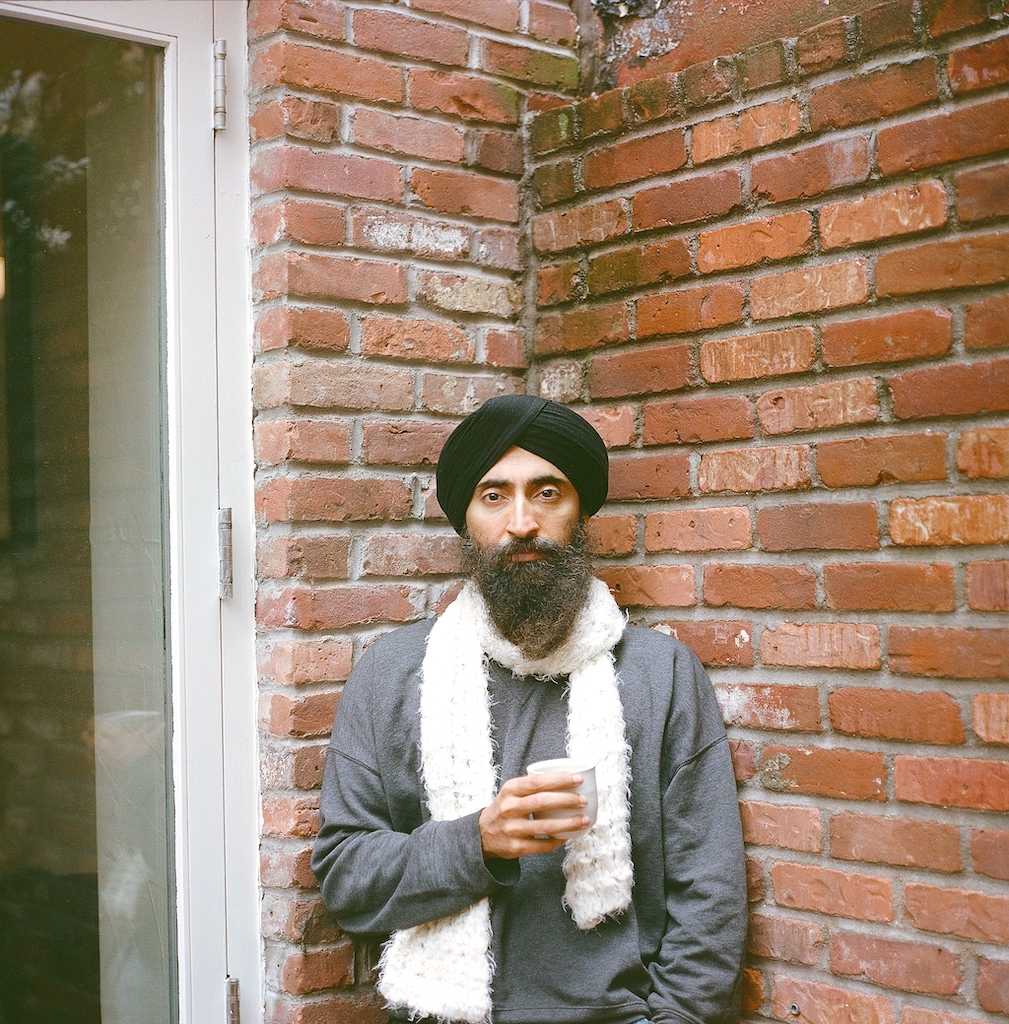
[Photo: Gautam Balasundar]
Share this Story
More Culture
Bulgari Hotels Screens “An Emperor’s Jewel – The Making of The Bvlgari Hotel Roma” in NYC
Hoteliers, artists, designers, and media came together for a special screening of "An Emperor’s Jewel – The Making of The Bvlgari Hotel Roma” at the exquisite Morgan Library in New York City
tell me more ›“Becoming Familiar” Is The Experience To See and Touch at Design Miami 2023
LA Based Raise the Moral Studio Sensory Art Objects Win Best Curio Presentation at Design Miami 2023
tell me more ›Helping Hands for Morocco
How to support from afar those making a difference on the ground
tell me more ›Ian Schrager & AHL Founder Ben Pundole Open 10th Annual L.E. Miami
The legendary hospitality impresario in conversation with his long time magic maker (and A Hotel Life founder) on the past, present and future of hotels
tell me more ›
